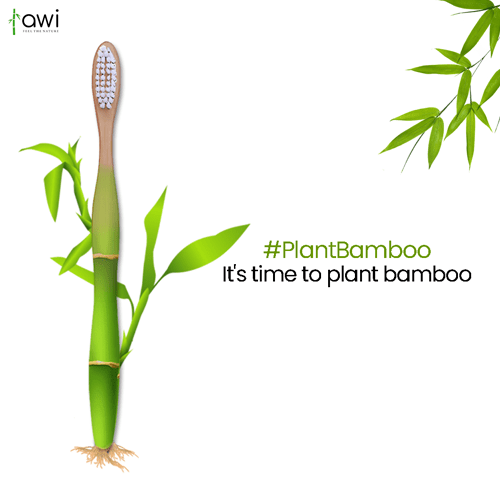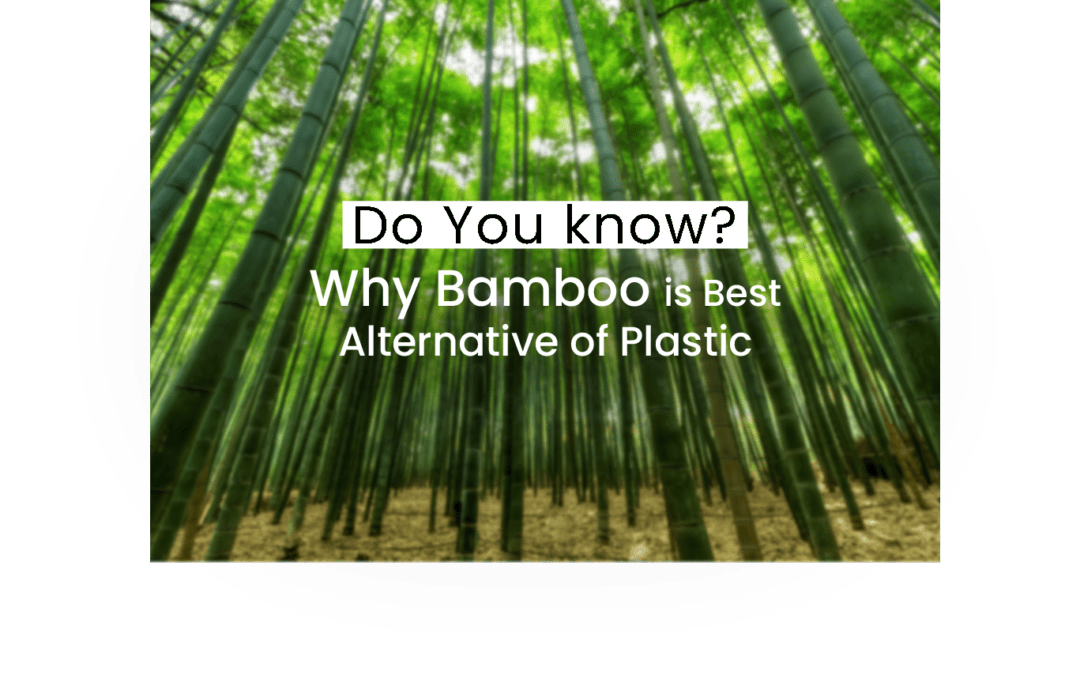The alternative of plastic? Have you ever used a bamboo toothbrush instead of a plastic toothbrush?? Yes or No? But we all are trying to make India plastic-free… That’s why we are using its substitute instead of plastic in our day-to-day life. So, have you ever thought about why we are using bamboo as an alternative to plastic? We can use some other wood as an alternative to plastic. If you are also looking for an alternative to plastic, keep reading…
so here are some reasons why bamboo is the best alternative to plastic.
Journey of Bamboo :
Bamboo is a type of grass that has been used by humans for thousands of years. In ancient China, bamboo was considered a symbol of strength and resilience and was often used in art and literature. In Japan, bamboo is an important symbol in the tea ceremony and is used to make traditional baskets and other crafts. In India, bamboo is used for cultural and spiritual purposes.
Now, India has been promoting bamboo cultivation as a way to create rural employment and improve the livelihoods of farmers, which will help to meet the domestic demand for bamboo and also increase exports. Bamboo is a potential solution for climate change and environmental problems, as it is a fast-growing and renewable resource that can help reduce the pressure on forests.
Regions of Bamboo :
Bamboo forests are found in cold mountainous regions to tropical regions including eastern Asia, Northern Australia, India, and the Himalayan, regions of Africa, and in the US from America to Argentina and Chile. In India, Bamboo is found in the North Eastern States of India and Central India.
Bamboo Farming :
Bamboo is a fast-growing and versatile plant that can be grown in many different climates and soils. The crop requires less water and pesticides than many other plants. Bamboo is ready in 5-6 years for work. Bamboo is unaffected by drought and rain.

Unique features :
- Rapid growth – 3 feet per day
- Release 35% more oxygen
- Strong and durable
- 100% sustainable and biodegradable
- Soil erosion control
- Decomposed within a year
Commercial Use :
Bamboo as an alternative to plastic has a wide range, making it a valuable resource for many industries. Some of the most common uses of bamboo include:
- Constructions
- Textiles
- Paper
- Food & medicine
- Furniture
- Flooring
These are just a few examples. As the world’s population continues to grow and the demand for natural resources increases, bamboo is likely to become an even more important resource in the years to come.
Comparison :
Here we are showing some differences between Plastic and Bamboo so that you can easily understand what is best for you.
| Attribute | Bamboo | Plastic |
| 1. Material | Natural material | Man-made material |
| 2. Sustainability | Yes | No |
| 3. Biodegradable | Yes | No |
| 4. Eco-friendly | Yes | No |
| 5. Decomposition | Within a year | Take hundreds of years |
| 6. Stronger | Yes, more than steel | Not much |
| 7. Impact | Positive | Negative |
The best way to protect our planet is by reducing our carbon footprint by reducing waste or recycling materials that contain plastic!
There are many reasons to switch to bamboo. It’s a great alternative to plastic and can be used in all kinds of ways. Plastic pollution is a major environmental issue that harms wildlife, oceans, and ecosystems. To address this problem, individuals, businesses, and governments can take steps to reduce plastic consumption and properly dispose of plastic waste. Some actions that can be taken include: -Reducing the use of single-use plastics such as toothbrushes, straws, water bottles, and shopping bags.
Switching to bamboo as an alternative to plastic is an eco-friendly choice, that offers strength, durability, and versatility without harming the environment.


